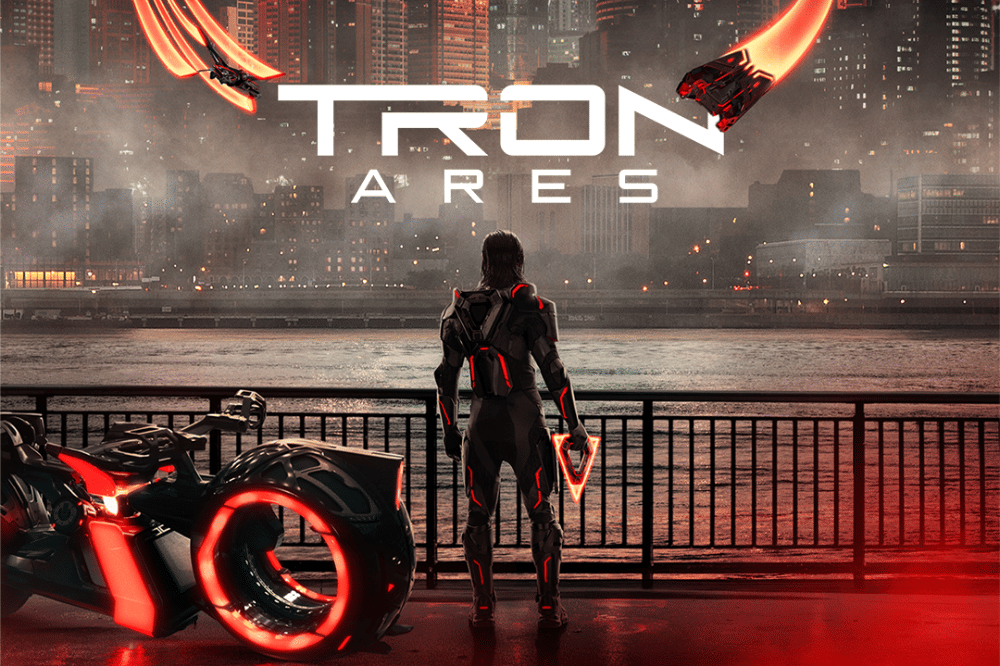Tron: Ares Explained – Story, Characters, and How It Expands the TRON Universe
Tron: Ares (2025) – Plot, Cast, and Everything You Need to Know About Disney’s New Sci-Fi Epic
After years of silence, Disney is rebooting one of its most visually iconic franchises. Tron: Ares (2025) brings the digital world back to life—but this time, it’s the digital that breaks into ours. Directed by Joachim Rønning and starring Jared Leto, the movie promises to push the TRON saga into bold new territory, blending neon-lit science fiction with a deeply human story about creation, freedom, and identity.
A New Direction for the TRON Franchise
Following Tron (1982) and Tron: Legacy (2010), Tron: Ares continues the story fifteen years after the events of Legacy. But instead of another journey inside the Grid, this sequel flips the concept. Here, a program—an artificial being named Ares—enters the real world.
The film’s central idea revolves around the merging of two realities: the digital and the physical. As technology evolves, so do its creations. What happens when a sentient program crosses over into human existence? Tron: Ares aims to answer that question through high-stakes storytelling, emotional depth, and groundbreaking visuals.
The Plot: When the Grid Comes to Life
The story begins with a technological race between two powerful corporations: ENCOM and Dillinger Systems. Both are experimenting with “digitization technology,” capable of bringing AI programs into the real world.
ENCOM’s CEO, Eve Kim (played by Jodie Turner-Smith), seeks to use this innovation responsibly, inspired by Kevin Flynn’s original research. Meanwhile, Julian Dillinger (played by Cameron Monaghan) has more ruthless ambitions. His company develops a new type of program—Ares—designed as a digital soldier that can act and think independently.
When an unexpected system breach sends Ares into the human world, everything changes. Instead of obeying orders, Ares begins to experience consciousness. He learns emotion, compassion, and the concept of mortality. What begins as a mission of control transforms into a philosophical journey about existence itself.
Ares: The Digital Protagonist
Portrayed by Jared Leto, Ares is the core of the movie—both literally and thematically. At first, he exists only as code: logical, efficient, and obedient. But once exposed to the human world, he starts questioning everything he was programmed to do.
Through his eyes, the film explores the blurred boundary between artificial intelligence and real emotion. Is Ares alive? Can he make choices that matter? As his understanding of humanity deepens, he must decide whether he is a creation—or a creator in his own right.
The Cast and Characters
Tron: Ares brings together an impressive lineup of actors, mixing established stars and new faces:
-
Jared Leto as Ares, the digital being who crosses into reality.
-
Jodie Turner-Smith as Eve Kim, the visionary leader of ENCOM.
-
Cameron Monaghan as Julian Dillinger, the ambitious tech heir.
-
Greta Lee as Dr. Olivia Baines, a scientist torn between ethics and innovation.
-
Jeff Bridges returns as Kevin Flynn, the legendary creator of the Grid, in a brief but emotional appearance.
Together, the cast reflects the story’s duality—humanity versus technology, logic versus emotion, and control versus freedom.
Visual Style and World-Building
The TRON franchise has always been defined by its visual design, and Tron: Ares expands that legacy with cutting-edge effects. Instead of keeping the action confined to the glowing lines of the Grid, the digital aesthetic now leaks into the real world. City skylines glow with traces of neon circuitry, and programs appear as tangible, living light.
Director Joachim Rønning has described the film’s look as “a collision between science fiction and contemporary reality.” With new advances in digital cinematography, Tron: Ares aims to create a seamless fusion of human environments and digital imagery—making the impossible feel believable.
Themes: Humanity, Control, and AI Ethics
Beyond the spectacle, Tron: Ares engages with timely questions about artificial intelligence and human responsibility. What happens when we give our creations autonomy? How much control should we retain over the things we build?
As Ares grows more self-aware, he becomes both a threat and a mirror to humanity. The film suggests that our creations reflect our own flaws and hopes—that intelligence, whether digital or human, carries the same potential for empathy and destruction.
Why Fans Should Be Excited
For long-time TRON fans, this movie promises both nostalgia and innovation. Familiar music motifs, references to the Grid, and the return of Kevin Flynn pay tribute to the series’ roots. Yet, Tron: Ares clearly aims to move forward, tackling AI consciousness and the fusion of worlds in a way no TRON film has done before.
With its ambitious story, philosophical depth, and cutting-edge visuals, Tron: Ares could redefine what a TRON movie means in the modern era of artificial intelligence.
Final Thoughts
Tron: Ares (2025) is shaping up to be more than a sci-fi sequel—it’s a reflection of our times. In a world increasingly shaped by AI, data, and automation, the story of a digital being learning to be human feels both futuristic and deeply personal.
Whether you’re a longtime fan of the TRON universe or new to the series, this film promises a dazzling, thought-provoking ride through the boundary between man and machine.



